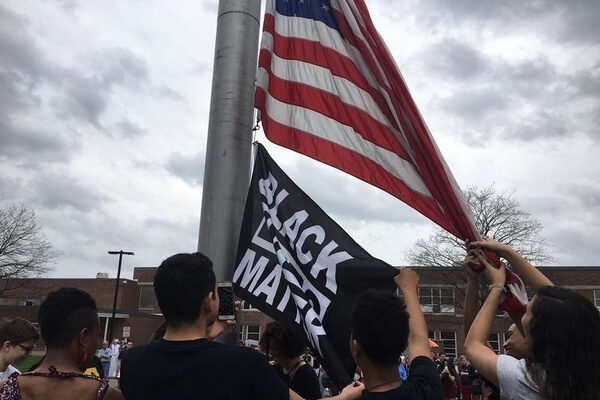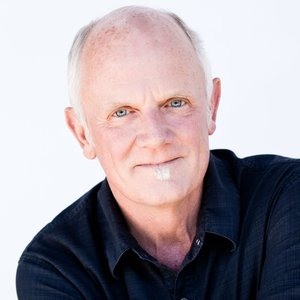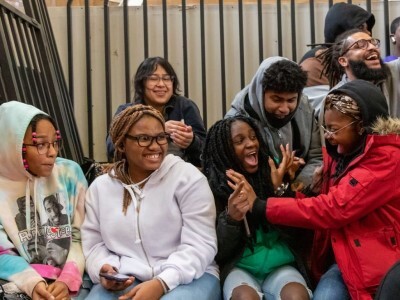Enabling Change
White Supremacy Culture Is Constraining Our Thinking about Reopening School
Topics

Next generation learning is all about everyone in the system—from students through teachers to policymakers—taking charge of their own learning, development, and work. That doesn’t happen by forcing change through mandates and compliance. It happens by creating the environment and the equity of opportunity for everyone in the system to do their best possible work.
We can create better solutions to reopening schools if we challenge the ways that the characteristics of white supremacy culture show up in our thinking.
In the urgency around school reopening planning, the uncertainty of the pandemic’s course, and the political environment surrounding that planning, we’ve allowed ourselves to be constrained, unknowingly, by assumptions that derive from our traditions of white supremacy culture. I’m not talking about loud white men in camouflage waving Confederate battle flags. I’m talking about mainstream assumptions that we all grew up with, that the literature on white supremacy culture identifies clearly, that but few of us white folks have actually thought much about in terms of how they affect our everyday lives.
If these characteristics sound familiar, they should. These ways of thinking about the world dominate our experience in the U.S. and, in fact, Western Europe too. These operate individually, but they also weave together to form a whole culture, a set of habits of mind, that is constraining our current thinking.
The literature also identifies “antidotes” to these characteristics and assumptions about the world. If we want to be successful in our reopening process, we might non-defensively critique how these characteristics are constraining us, and consider how the antidotes could support more inclusive deliberations, planning, decision-making, and choices of action.
Let’s explore how these characteristics and constraints operate. I’m going to focus on a few of these that seem most compelling; however, you might want to explore the rest further to see what connections you can make. But before diving into the characteristics, I want to make a point about the “we” for whom I am writing this blog post. I am not writing to blame any one person or group for being influenced by white supremacy culture. My colleague Doannie Tran puts it this way,
White supremacist tendencies are baked into every aspect of our culture and society. Also, there is no central body that should be wholly responsible for ‘planning the reopening of school.’ If re-opening is a collective enterprise comprising many fractal relationships where white supremacist tendencies play out, and we want to think about equitable reopening, we have to stop thinking about interrupting these tendencies in some particular place. Interruption must happen among the ‘fractal we;’ that is, every team, group, community, task force that does the work. We are all part of the planning, so from the district outwards, we all need to interrupt these tendencies in our interactions. We may choose to start this interruption of white supremacy with educational leaders, but unless it expands to include the entire nested set of relationships, we have no chance of actually achieving greater equity in this moment.
Perfectionism often creates an atmosphere where people’s efforts are not appreciated, mistakes are seen as personal, things must be “right” before they are shared, and there are few opportunities to learn and improve. Above all is the belief that things should be done perfectly or not done at all. We are expecting that school districts will have the perfect and complete plan for reopening before they share it with the community or even with teachers. That lack of engagement with those most affected by the plan is more than likely to lead to the very failure that perfectionism abhors. Instead, we might work to develop a culture of collective learning, where we listen to the community to hear lots of ideas, try them out, see what is working and not, get feedback, recognize mistakes as opportunities to improve, and slowly iterate our plans toward positive results.
A Sense of Urgency drives us to act without reflecting on the assumptions underlying our actions, and “makes it difficult to take time to be inclusive, encourage democratic and/or thoughtful decision-making, to think long-term, to consider consequences.” That’s one of the main explanations for why students and families, community organizations, local businesses, and even city governments seem to be in the dark about school reopening even as the day approaches, rather than to be included as partners in the design of reopening plans. It’s also why those plans are likely to fail, because we’ve assumed we know what the “problem” is that needs to be solved, and are going full steam ahead with solutions, rather than actually taking the time for collective root cause analysis and reflection. Alternatively, we might realize that “there is always enough time for the right work,” as adrienne maree brown says, and “slow is smooth and smooth is fast,” as the U.S. Army Field Manual states. We would engage in “equity pauses” to reflect on how equitably we are behaving and how well our planning addresses equity challenges, and we would “radically include” those most marginalized voices from which we could learn something profoundly different about how we might reopen school. And when we do act, we would act in ways that realize that we can’t have a perfect, whole plan that addresses every eventuality, as this is all very new. Instead, we would test out partial ideas, multiple ways of reopening, listen, iterate and improve, and thus act while still uncertain.
Defensiveness drives us to protect power and try to control for potential abuse while preventing ideas that might threaten leaders, and thus creates an oppressive culture. Along with perfectionism and a sense of urgency, defensiveness also dissuades us from involving others with different ideas that might actually solve real problems and hides the work being done until leaders feel it is perfect. Instead, we could work against our defensiveness and encourage power sharing instead of Power Hoarding. We could realize that people are capable of much more than we think. In fact, we become most defensive when we refuse to engage students in sharing their experiences with pandemic learning and suggesting better ideas for what school could be. And in most cases, in my experience at least, students are capable of much, much more than we think.
Quantity Over Quality has been a core value in education for too many decades, assuming that the only things that matter are those that can be measured by standardized tests or by the quantity of things that get done (seat time, number of assignments, course completion). So we want a plan with measurable goals, and we want to know what we are going to get for the money we spend. What if instead we valued the processes by which we brought people together to deliberate, disagree, and work it out? What if we valued the relationships we built in doing that and got collectively clear on what we value about our schools and learning? What if we were willing to keep whatever documents we created alive and able to be revised as the quality and meaning of our experiences changed?
“Never assume that you or your organization know what's best for the community in isolation from meaningful relationships with that community.” –Kenneth Jones & Tema Okun
Worship of the Written Word leads to assuming that we can craft a perfect plan in written form, and then go on to implement it, and that is all we need to do. Or the perfect pandemic curriculum. Or the perfect virtual lesson plan. It assumes that other ways of making meaning and coming to agreement about what to do are of less value, and misses that the community might actually have a better idea even if it is not expressed in perfect written English. It forgets the value of relationships and participation. As Kenneth Jones and Tema Okun said in their seminal work on white supremacy culture, “[N]ever assume that you or your organization know what's best for the community in isolation from meaningful relationships with that community.” Even if you want a written plan, assume that it could result from meaningfully engaging the community (including students and families) in talking through and coming to agreement about what a meaningful plan would include, and in inclusive and shared responsibility for enacting and revising it. A writer friend of mine once said, “Books are just the evolution of someone’s ideas caught in a particular moment in time. The ideas continue to change and develop, after the book, just as they did before the book.” As for the perfect curriculum, ask any good teacher about that idea.
Paternalism underlies all of these other characteristics. We assume that designated leaders know what is best for students, families, and the community. District leaders assume the awesome responsibility for taking care of all the complexities of reopening school. We assume that those without power don’t understand, and don’t need to understand, how decisions get made. What if it turned out that expertise lies in the lived experience of all those affected by this pandemic and by the ways that school has been organized that do or don’t work for them, and could be organized differently? What if we realized that the best ideas and the capacity to make intelligent decisions were actually spread out across the community and could be harnessed by listening and bringing people together?
Either/Or Thinking, or dichotomizing, or zero sum thinking, oversimplifies complex situations (such as how to reopen school during a pandemic), contributes to perfectionism, creates unnecessary conflict, and increases a sense of urgency. “There is no way to solve this problem but to do X” is one kind of either/or thinking. Scarcity mentality is another. “It’s either all distance learning, or all physically present in the school building learning, or all hybrid learning,” is another form of either/or thinking. Dichotomizing suggests there is a right way and a wrong way to open school. And the right way is the perfect way. Instead, we could encourage views that embrace the apparent paradox of both/and, or create processes that develop multiple ways of thinking or doing school. We could slow down the process (act against a Sense of Urgency), breathe, complexify overly simplistic thinking, look for many, crazy, out-of-the-box ideas to explore, and explore them.
What if we worked with families and community organizations and cities to expand the learning spaces and ways of learning available to young people?
Individualism is so deeply ingrained in our society, and it’s killing our capacity to generate a collective sense of civic responsibility for how we reopen school. Parents, especially, feel terribly isolated right now: we are expecting nuclear families individually to figure out how to home school their children and work full time too. We haven’t included them in communication or decision-making, partly because of the perfectionism of our institutional cultures that also are acting as if it is an individual’s responsibility (individual superintendent, individual school system, etc.) to solve this problem. Small groups of mostly white and affluent families are acting as individual entities to separate from their school districts and in some cases hire teachers away from the schools to teach their children in “pods,” exacerbating inequities in our educational system that the pandemic has highlighted. I’m not saying that families simply trying to create a more effective model (for their kids and for themselves) than "kids at home on laptops full-time" is a bad thing. Some pods are home-school networks where the students are still enrolled in schools, but there is a guide in place—who may be a teacher who really doesn't want to return to a school building right now, but would do that when it's safer, later—to make the online curriculum work better and explore other forms of learning. The point isn’t to demonize pandemic pods, entirely. If I were a parent of three kids in K-8, facing a year of at-home online instruction of still-questionable value, I might well be doing exactly that. The problem is the influence of the mindset of individualism and the blind spots and isolation it creates. It limits how families and school districts are approaching this challenge, and it is creating fragmentation and incoherence if not increased inequity.
What if we took these individual families’ concerns seriously and proactively worked with them as a team to think through how to support “out of school” learning? What if we proactively guided families to organize these pods in more equitable, inclusive, and diverse ways, even paying for teachers to spend time with these pods as part of their job? What if we worked with families and community organizations and cities to expand the learning spaces and ways of learning available to young people, and at the same time expand the numbers and backgrounds of those who can support their learning? What if we developed a collective sense of accountability, of civic responsibility for (and with) all our young people?
Objectivity believes there is one, emotion-free, monolithic view of reality, and as such clouds our understanding of the huge range of ways that people make sense of their experience and come to know their worlds. Most of the district, state, and federal education policies that we have created to control and guide schools are based on the belief in one objective reality that anyone can have access to; this has influenced everything from standardized testing to the idea that children range along a “normal curve” of behavior, intelligence, and ability. If we recognized that we all see the world differently based on many factors, and our understanding of things is based on that subjective experience, then how we thought about reopening school might benefit from that variety of ways of seeing the world. Some students have blossomed during the closing of brick and mortar schools this past spring, even some who we thought would not. Some desperately need the physical presence of their peers and teachers to feel safe to learn. Sometimes that changes from day to day. If we have learned anything in the past few months, it is that the variety and nuance of ways of learning are far greater than we imagined when we could cram everyone into small classrooms and use some form of social control to keep them there. A false sense of objectivity feeds perfectionism as well as paternalism, overvaluing the written word, quantity over quality, and either/or thinking. As complex as our reopening responses need to be, we will fail if we think we have an objectively perfect plan to address that complexity.
*** *** *** *** ***
Planning to reopen school during a pandemic is almost an oxymoron. It is essential as I have argued elsewhere that we be rock-solid clear on our values and our beliefs about learners and learning, as that north star can guide us in these stormy seas. Yet we must have the courage to take strong leadership positions and the humility to be willing to acknowledge when we have made a mistake and reframe. And in the middle of this complexity we cannot be certain about the perfect steps to take to achieve a vision of school fulfilling its responsibility to our emerging next generation of leaders, our young learners. We are going to need “maximum tactical flexibility” and significantly broadened participation of everyone in making this work. Challenging and breaking away from the tired, old assumptions and habits of mind of white supremacy culture is one way we can make it work for all our young people and our communities.
Photo at top by Howard Weiss-Tisman, courtesy of Vermont Public Radio: Brattleboro Union High School (Vermont) students prepare to raise a Black Lives Matter flag on the flagpole outside the school.





